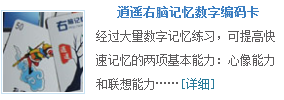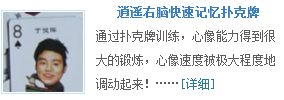八上仁爱版Unit 3 What hobbies did you use to have设计
The main activities are 1a and 3a. 本重点活动是1a和3a。
Ⅰ. Teaching aims and demands 目标
1.Learn some useful words and expressions:
vacation, pond, nobody, paint, such, such as, friendship, knowledge, daily, and so on
2.Go on learning“used to do sth.”:
(1) — Did you use to go swimming during the summer vacation?
— Yes, I did.
(2) — Where did you use to go swimming?
— I used to swim in the pond in front of my house.
(3) — What hobbies did you use to have?
— I used to listen to pop music.
3.Talk about the advantages of hobbies:
(1) People have hobbies because hobbies can bring them happiness, friendship and knowledge.
(2) Hobbies help people relax after their daily work.
(3) When people become old, hobbies can keep them healthy.
(4) When people are sick, hobbies can help them get well soon.
Ⅱ. Teaching aids 教具
小黑板/录音机/挂图/
Ⅲ. Five-finger Teaching Plan 五指教学方案
Step 1 Review 第一步 复习(时间:10分钟)
1. (师生对话,谈论业余爱好。)
T:What do you often do in your spare time, S1?
S1:I often go fishing.
T:Why do you like it?
S1:Because it’s very interesting.
T:S2, what do you often do in your spare time?
S2:…
…
T:Good. We all like doing interesting things in our spare time. I like drawing. I like painting. But I didn’t like painting in the past and I used to enjoy watchi ng TV. y interests are changing all the time. What about you? Please tell us your interests using“…used to do sth., but now I …”
(板书)
paint = draw
2. (请2—3名学生介绍自己过去和现在的兴趣和爱好。通过介绍,寻找朋友。)
S3: Hi, I’m … I used to … , but now I like … Who shares my interest? Let’s be friends.
S4: …
3. (师生对话,引出used to do sth. 的疑问形式。导入新。)
T:I used to go to school on foot, but now I ride a bike. S5, did you use to go to school on foot?
S5:Yes./No.
(板书)
Did you use to … ?
Yes, I did. / No, I didn’t.
T:Did you use to go to school on foot, S6?
S6:Yes, I did.
(找一名不是步行去上学的学生继续问,即引出used to do的特殊疑问句。)
T:Did you use to go to school on foot, S7?
S7:No, I didn’t.
T:How did y ou use to go to school?
S7:I used to go to school …
T:S8, how did you use to go to school?
S8:…
T:Did you use to go swimming, S9?
S9:Yes, I did. / No, I didn’t.
(若学生回答Yes,继续下面的问题。)
T: Where did you use to go swimming?
S9: I used to go swimming …
(若学生回答No,引出下面的问题。)
T: What did you use to do?
S9: I used to …
(板书)
—What did you use to … ?
—I used to …
T:What did you use to do during the summer holidays?
S10:I used to go swimming.
(导入1a。)
T:Oh, the boy in 1a used to go swimming during the summer vacation, too.
(板书)
the summer vacation=the summer holidays
Step 2 Presentation 第二步 呈现(时间:5分钟)
1. (让学生听1a录音,回答设置在小黑板上的问题。)
(1) Did the boy use to go swimming during the summer vacation?
(2) Where did he use to go swimming?
(3) Who taught him to swim?
(核对答案。)
2. (教师对生词及词组进行解释,并板书。)
teach myself
nobody = no one
3. (再让学生听1a录音,分男女生跟读。)
4. (让学生两人一组进行对话,练习1a。)
Step 3 Consolidation 第三步 巩固(时间:7分钟)
1. (学生两人一组,用小黑板上的词或词组进行替换练习。练习used to的一般疑问句和特殊疑问句。)
(1) fly kiteswherein the park
(2) f ishwherein the pond
(3) play computer gameswhenon weekends
(4) listen to music what musicpop music
T: Look at the small blackboard. Let’s make a dialog according to 1a using the words and phrases on it.
2. (让学生两人一组,用What hobbies did you use to have? I used to … What hobbies do you have now?的句型和1b中的词组练习对话,邀请两组学生上台表演。完成1b。)
(教师对paint进行解释。)
(板书)
paint
Example:
S1: What hobbies did you use to have?
S2: I used to play computer games.
S1: What h obbies do you have now?
S2: Well, I prefer going roller skating.
S3: …
S4: …
…
Step 4 Practice 第四步 练习(时间:15分钟)
1. (教师出示2挂图或类似图片中内容的,让学生用used to do sth.句型造句,完成2中的内容。)
(核对答案。)
2. (让学生听3a录音,回答小黑板上的问题。)
(1) What interesting things do people do in their spare time?
(2) Why do people have hobbies?
(核对答案。)
3. (学生阅读3a,找出生词。)
(板书)
such as, friendship, knowledge, daily
4. (师生一起找关键词,为下一步学生复述打基础。)
(1)do what they like — spare — keep pets — play sports — dance to music — play computer games — chat — paint — collect (coins, dolls or stamps)
(2)hobbies — bring (happiness, friendship, knowledge) — relax — daily work —
old — keep … healthy — sick — get well
5. (教师再次放3a录音,学生静听,然后齐读。)
6. (根据3a的内容,学生独立完成3b。)
(核对答案。)
7. (学生可根据关键词复述,也可根据3b复述;可以复述全部,还可一人只复述一段。)
T:Please retell the text according to the key words or the passage in 3b. Three minutes to prepare.
S1 :People usually do what t hey like in their spare time …
S2:People have hobbies because hobbies can bring them happiness, friendship and knowledge …
S3:In their spare time, people usually chat on the Net, …
…
Step 5 Project 第五步 综合探究活动(时间:8分钟)
1. (两人一组活动。用used to do sth.的疑问句编对话。老师选出较好的小组到前面表演,并给予奖励。)
Example:
S1: What hobbies did you use t o have?
S2: I used to fly kites.
S1: Where did you use to fly kites?
S2: I used to fly kites in the park.
S1: Who did you use to fly kites with?
S2: I used to fly kites with my good friends.
S1: What hobbies do you have now?
S2: I like going fishing.
S1: Why?
S2: Because I think fishing is very interesting.
2. (教师出示小黑板,让学生用表格的形式向班上同学简述自己家人的兴趣和爱好。)
PersonIn the pastNowReason
Grandfather
Grandmother
Father
other
…
3. (让学生听4录音,用趣味说唱的活动激发学生学习英语的兴趣。)
T: Let’s chant.
4. Homework:
让学生用used to do sth.造句,句式不要重复,要有肯定句、否定句及各种疑问句。
板书设计:
What hobbies did you use to have?
Section C
the summer vacationused to do sth.
the summer holidays¬—Did you use to …?
—What hobbies did you use to have?
—I used to listen to pop music.
本文来自:逍遥右脑记忆 http://www.jiyifa.net/chuer/35416.html
相关阅读:八年级英语上册Unit1-12全套教案3
闂傚倸鍊搁崐鎼佸磹閹间礁纾归柟闂寸绾惧綊鏌i幋锝呅撻柛銈呭閺屾盯骞橀懠顒夋М闂佹悶鍔嶇换鍐Φ閸曨垰鍐€妞ゆ劦婢€閺夘參姊洪柅鐐茶嫰婢ь噣鏌涢悢鍛婄稇闁伙絿鍏樻俊姝岊槷闁稿鎸搁埥澶娾枍椤撗傜凹缂佸倸绉靛ḿ蹇涘Ω瑜忛惁鍫ユ⒑濮瑰洤鐏叉繛浣冲啰鎽ラ梻鍌欒兌鏋柨鏇樺€濋、姘额敇閻樻剚娼熼梺鍦亾閸撴艾岣块埡鍛厾闁告縿鍎查弳鈺呮煕濡搫鑸规い顏勫暣婵″爼宕卞Δ鈧~鍥⒑缁嬪尅鏀绘繛鑼枎椤曪綁骞栨担鍝ョ潉闂佸壊鍋嗛崰鎾诲储閽樺鏀介柣妯肩帛濞懷勪繆椤愶絿娲寸€规洘妞介弫鎰緞鐎n剙骞愰柣搴″帨閸嬫捇鎮楅敐搴″闁糕晛鐭傞弻褏绱掑Ο鐓庘拰闂佸搫鑻粔鐑铰ㄦ笟鈧弻娑㈠箻鐠虹儤鐏堝Δ鐘靛仜閸熸娊藝瀹曞洨纾肩紓浣贯缚缁犵偟鈧娲濋崺鏍囬悧鍫熷劅闁挎繂鍊归敍鍫ユ⒒閸屾艾鈧绮堟笟鈧獮鏍敃閵堝洨鐓撴繛鎾村焹閸嬫挾鈧娲忛崹铏圭矉閹烘柡鍋撻敐搴′簻濞存粍顨婂娲濞戣鲸顎嗘繝纰樷偓铏窛缂侇喚绮妶锝夊礃閳哄啫骞嶉梺璇叉捣閺佸憡鐏欐繛瀵稿閸ャ劎鍘甸梺鍛婂姇瀵爼宕冲ú顏呯厪闁搞儜鍐句純闂佽桨鐒﹂崝娆忕暦閵娾晩鏁囬柣妯垮吹瀹曟粎绱撻崒姘偓鐑芥嚄閸撲礁鍨濇い鏍ㄧ矋瀹曟煡鏌涢鐘插姎闁哄嫨鍎甸弻宥堫檨闁告挻宀告俊鐢稿礋椤栨氨顔婇悗骞垮劚濞村倸危椤旂⒈娓婚柕鍫濇缁€瀣瑰⿰鍐煟鐎殿喖顭烽崺鍕礃閵娧呯嵁闂佽鍑界紞鍡樼閻愬顩风紒瀣儥濞撳鏌曢崼婵嗘殭闁告梹绮庣槐鎺旀嫚閼碱剙顣哄銈庡亜缁绘劗鍙呭銈呯箰鐎氼噣顢欓幇鐗堚拺缂備焦锚婵牏鎲搁弶鍨殲濞e洤锕ㄩˇ瑙勬叏婵犲啯銇濈€规洏鍔嶇换婵嬪磼濮樺吋缍傞梻鍌欑閹碱偊骞婅箛鏇炲灊鐎光偓閸曨偆鍘洪梺瑙勫劤椤曨參銆呴悜鑺ュ€甸柨婵嗛娴滄劙鏌熼柨瀣仢闁哄矉缍侀幃鈺呭矗婢跺鍊烽柣搴㈩問閸犳牠鎮ユ總鍝ュ祦闁硅揪闄勯弲鎻掝熆鐠轰警鍎戦柛妯兼暬濮婃椽骞嗚缁傚鏌涚€n亝鍣藉ù婊勬倐椤㈡﹢濮€閿涘嫬寮抽梻浣告惈濞诧箓鏁嬮梺璇茬箲閻擄繝寮婚敍鍕勃闁兼亽鍎哄Λ鐐差渻閵堝棙灏柕鍫⑶归悾鐑藉Ω閳哄﹥鏅╅梻浣诡儥閸ㄧ増绂嶉悙顑句簻闁圭儤鍨甸顏堟煟閹惧鈽夋い顓℃硶閹瑰嫰鎮弶鎴濐潬濠电姭鎷冮崟顐や紝闂佸搫鏈惄顖氼嚕椤掑嫬閿ゆ俊銈傚亾鐎殿喕鍗冲娲濞戞瑯妫為梺纭呮珪閿氭い鏇稻缁绘繂顫濋鈹垮姂閺屻劑寮埀顒勫磿閹剁晫宓佺€广儱顦伴埛鎺懨归敐鍫燁仩閻㈩垱鐩弻娑㈠Ω閿曗偓閸斿爼鏌熺粵瀣簽缂佽鲸甯¢幃娆擃敆閳ь剛绮堥崘顏佸亾鐟欏嫭绀堥柡浣呵瑰嵄闁圭増婢樼粻铏繆閵堝拑鏀婚柡鍛櫊濮婃椽宕楅梻纾嬪焻闂佺ǹ閰f禍璺侯嚕閸愬弬鏃堝礃椤忓棴绱冲┑鐐舵彧缁茶偐鍒掑▎鎾充紶婵炲樊浜濋悡娆撴煟閻斿搫顣奸柟鍏煎姍閺岋綁鏁愰崨顓熜╁銈庡亝缁捇宕洪埀顒併亜閹烘垵顏╅柡鍕╁劦閺屽秹鍩℃担鍛婃婵犳鍨遍幐鍐差嚕閸洘鍊烽梻鍫熶緱閺嗩參姊虹粙娆惧剰闁硅櫕锚椤繑绻濆顒傦紲濠电偛妫欓崝妤呭Χ閺夊簱鏀介柍鈺佸暔娴犵娀鏌涢弮鈧崹鐢革綖韫囨稒瀵犲鑸得幃鎴炵節閵忥絾纭鹃柨鏇畵閺佸秴鈻庤箛濠冩杸闂佺粯岣跨划顖氣槈瑜庨妵鍕箣濠靛洦鎮欓梺浼欑到閻忔氨绮悢鐓庣劦妞ゆ帒瀚粻鏍ㄤ繆閵堝懏鍣洪柡鍛叀楠炴牜鍒掗悷鏉库拤闂佽绻愮粔鐟邦潖閾忓湱鐭欐繛鍡樺劤閸撶偓绻涚€涙ḿ鐭嬬紒璇茬墛娣囧﹪鎮界粙璺槹濡炪倖鐗楅懝楣冨船閵娾晜鈷戦梻鍫熶腹濞戞矮娌柣鎰靛墻閸熷洦绻濈喊澶岀?闁稿鍨垮畷鎰板冀椤撶偠鎽曢梺闈浨归崕宥吤洪宥嗘櫍闂佺粯鍨靛Λ娆戠礊鎼粹檧鏀介柣鎰级閳绘洖霉濠婂嫮鐭婃い鏂跨箰閳规垿宕辫箛鏃€鏉搁梻浣虹帛钃辩憸鏉垮暣椤㈡棃顢旈崼鐔哄幈闂佹寧绻傛绋款嚕椤旇姤鍙忓┑鐘插暞閵囨繃顨ラ悙瀵稿⒌闁诡喗鐟╅獮鎾诲箳濠靛洨绉遍梻鍌氬€烽懗鑸电仚濡炪倖鍨靛Λ婵嗙暦濠靛鍗抽柕蹇曞Х閸欌偓濠电姰鍨奸崺鏍礉閺嶎厼纾婚柕濞у懐锛滈柣搴秵閸樼晫娑甸崼鏇熺厱闁哄啯鎸鹃悾杈ㄣ亜椤忓嫬鏆e┑鈥崇埣瀹曞崬螖閸愵亝鍣梻浣筋嚙鐎涒晠宕欒ぐ鎺戠煑闁告劦鍠栫粻鏍煥閻斿搫校闁稿瀚伴弻娑樷槈濮楀牆浼愰悗娈垮枛閻忔繈鍩為幋锕€鐓¢柛鈩冾殘娴狀垶姊洪崨濠庣劶闁告侗鍠楀▓浼存⒑閻撳孩鎲搁柡浣告憸缁粯銈i崘鈺冨幈濠电偞鍨靛畷顒勫几閵堝鐓欓柛鎰级閸g晫绱掓潏銊ョ瑲婵炵厧绻樻俊鎼佸Ψ瑜忛幊鏍ㄧ節閻㈤潧浠ч柛妯犲懏宕叉俊顖濐唺缁诲棙鎱ㄥ┑鍡欑劸婵℃煡绠栧鐑樺濞嗘垵鍩岄梺闈涚墢鏋い顐㈢箲閵堬妇鎲楅妶鍕潖闂備礁婀遍崕銈囨崲閸愵啟澶愬冀閵娧呯槇闂佹眹鍨藉ḿ褎绂嶈ぐ鎺撶厱閻庯綆鍋呯亸鎵磼缂佹ḿ绠橀柛鐘诧攻瀵板嫬鐣濋埀顒勬晬閻斿吋鈷戠紒瀣硶缁犳煡鏌ㄩ弴妯虹仼妞ゆ洩缍侀、鏇㈡晝閳ь剛澹曟總鍛婄厽闁归偊鍘界紞鎴澝归悩灞傚仮闁哄矉缍€缁犳盯寮撮悙鐗堝煕闂佸搫顑愭禍婊堟箒濠电姴锕ら幊搴㈢妤e啯鐓忛柛銉戝喚浼冮悗娈垮枟濞兼瑨鐏冮梺閫炲苯澧紒鍌氱У閵堬綁宕橀埞鐐闂佽崵濮村ú鐘诲焵椤掑啯鐝柣蹇撶墦濮婃椽骞栭悙鑼痪闂佺粯鎼换婵嗙暦濞差亜顫呴柍鈺佸暙閸斿懘姊洪棃娑氬婵炲眰鍔戝鍫曞箹娴e厜鎷洪梺闈╁瘜閸欌偓婵$偓鎮傞弻娑㈠Ω瑜嶉。鑲╃磼閸屾氨效妤犵偛妫滈ˇ顕€鏌¢埀顒佺鐎n偆鍘藉┑鈽嗗灥濞咃綁寮搁崘顭戠唵閻熸瑥瀚ョ紓姘舵煟閵夘喕閭鐐叉椤т線鏌i幘鐐藉仮闁哄矉绱曟禒锔炬嫚閹绘帩鐎抽梻浣哥枃椤宕归崹顔炬殾闁告鍎愬ḿ銊╂煕閳╁喛鍏Δ鐘茬箰閳规垿鏁嶉崟顐℃澀闂佺ǹ锕ラ崝娆忣嚕閹绘巻鏀介悗锝庝簽椤ρ冣攽椤斿浠滈柛瀣尵閳ь剚顔栭崰娑㈩敋瑜旈崺銉﹀緞婵炪垻鍠栭弻銊р偓锝呯仛缂嶅矂姊婚崒娆戭槮闁硅绻濋妴鍐醇閵夈儳锛涘┑鐐村焾濠胶绱為弽顓熺厓闁告繂瀚崳娲煃闁垮鐏寸€殿喖鐖奸幃娆撳级閹搭厸鍋撳⿰鍕╀簻闁哄倹顑欏Ο鈧梺鍝勭焿缁绘繂鐣烽妸鈺婃晬婵﹫绲鹃悗鐗堜繆閵堝洤啸闁稿鐩畷顖涘閺夋垹顔夐梺鍛婃处閸樹粙宕戝鈧弻宥夊煛娴e憡鐏撳┑鐐插悑濡啫顫忕紒妯诲闁告稑锕ラ崕鎾绘煟閻樺弶宸濋柛瀣ㄥ€曢悾宄邦潨閳ь剙鐣峰⿰鍡╂Х闂佺ǹ顑嗛幐璇册缚韫囨稑鐓涢柛鎰典悍缁辨娊姊绘担鍛靛綊寮甸鍕殞濡わ絽鍟悞鍨亜閹哄棗浜鹃梺纭呭Г缁酣宕氶幒妤€绫嶉柛顐ゅ櫏濡啫鈹戦悙娈挎婵炲懏娲熼幆鍕敍濮樿鲸娈惧┑顔姐仜閸嬫挻銇勯姀锛勬噰闁硅櫕鐗犻崺锟犲礃閳哄啠鍋撻鈧濠氬磼濞嗘劗銈板銈庡亜椤︻垶鎮惧畡閭︽建闁逞屽墴閵嗕礁顫濋幇浣剐╂俊鐐€栭弻銊ф崲閹版澘鐓橀柟杈剧畱閻愬﹪鏌曟径鍫濃偓妤呮儎鎼淬劍鈷掑ù锝呮啞閹牓鏌涢悤浣镐簻閻撱倝鏌曢崼婵堝⒈闁哄棝浜跺缁樻媴缁涘娈柣搴㈢▓閺呮粎绮氶柆宥呬紶闁告洏鍔嶉悗娲⒑閸濆嫭宸濆┑顕€娼ч悾鐑藉矗婢跺瞼顔曢梺鐟邦嚟閸嬫盯鎮炶ぐ鎺撶厱閻庯綆鍋呯亸顓㈡煃閽樺妲搁柍璇叉捣閳ь剨缍嗛崜娑氱玻濡ゅ懏鈷掑ù锝堫潐閵囩喖鏌涘Ο鎭掑仮妞ゃ垺鐗犲畷銊р偓娑欋缚閻e啿鈹戦悩鍨毄濠殿喚顥愭晶婵嬫⒑缁嬫鍎愰柟绋垮⒔濡叉劙骞掑Δ濠冩櫓闂佷紮绲介張顒勫闯娴煎瓨鍊甸悷娆忓缁€鍐╀繆閻愭壆鐭欑€规洘妞介崺鈧い鎺嶉檷娴滄粓鏌熼崫鍕ф俊鎯у槻闇夋繝濠傚閻帡鏌″畝鈧崰鏍х暦椤愶箑绀嬫い鎺戭槹椤ワ絽鈹戦悙鑼憼缂侇喗鎸剧划濠氬冀瑜滃ḿ鏍煣韫囨挻璐¢柣顓熺懇閺屾盯寮介妶鍌氫壕闁告劕妯婂ḿ顒勬⒒閸屾瑨鍏屾い銏狅工閳诲秹寮撮姀鐘殿唹闂佹悶鍎洪崜娆撳几娓氣偓閺屾盯骞囬棃娑欑亪濡炪値鍋勯幊姗€寮婚弴銏犻唶婵犻潧娲ゅ▍褍顪冮妶鍡樺暗闁告鍥b偓鏃堝礃椤斿槈褔鏌涢埄鍏︽岸骞忚ぐ鎺撯拺缂佸娼¢妤呮煕閻旈攱鍋ラ柟顕€绠栭幃婊堟寠婢光斂鍔戦弻鏇熷緞閸繄浠鹃梺鍝勫€甸崑鎾绘⒒閸屾瑨鍏岀紒顕呭灦瀹曟繈寮撮悜鍡楁闂佸壊鍋呭▔娆愬緞婵炴儳鐗氶梺鍛婃处閸橀箖顢欓弴銏$厽閹艰揪绲鹃弳鈺呭几椤忓牊鐓曟俊顖滅帛鐏忥箓鏌″畝鈧崰鏍€佸☉姗嗘僵闁告劕妯婃导鍐⒒娴i涓茬紒鎻掑⒔閹广垽宕煎┑鍫熸闂佺粯姊婚埛鍫ュ极閸℃稒鐓曢悘鐐村礃婢规ḿ绱掗悩顔煎姢缂佽鲸鎹囧畷鎺戭潩椤戣棄浜鹃柟闂寸绾惧綊鏌i幋锝呅撻柛濠傛健閺屻劑寮撮悙娴嬪亾瑜版帒鐤炬い蹇撳閺€浠嬫煟濡澧柛鐔风箻閺屾盯鎮╁畷鍥р拰閻庤娲﹂崹鍫曠嵁瀹ュ鏁婄紒娑橆儐缂嶆姊绘担鍛婅础闁稿簺鍊曢~蹇涙偡閹殿喗娈炬繝銏e煐閸旀牠鎮¢敐澶屽彄闁搞儯鍔庨埢鎾绘煕鐎n偅灏柍钘夘槸椤繈宕瑰☉娆愭毌缂傚倸鍊搁崐鎼佸磹閹间礁纾瑰瀣捣閻棗銆掑锝呬壕闂佽鍨伴惌鍌氱暦閹烘垟妲堟慨妯哄悑闁裤倝姊绘担绋款棌闁稿鎳庣叅闁哄稁鍘奸崣濠囨煏婢跺棙娅嗛柣鎾存礋閺岋繝宕堕妷銉ヮ瀳闂佽绻掓慨椋庢閹烘鐒垫い鎺戝缁€鍐┿亜韫囨挻鍣归柡瀣灴濡懘顢曢姀鈥愁槱濠电偛寮剁划鎾诲箚瀹€鍕耿婵炴垶鐟ч崢鎾绘偡濠婂嫮鐭掔€规洘绮撻幃銏$附婢跺绋侀梻浣瑰劤缁绘锝炴径灞稿亾濮橆厼鍝洪柡宀€鍠撶槐鎺懳熸潪鏉垮灁闂備礁鎲¢弻銊┧囨潏鈺傤潟闁规儳鐡ㄦ刊鎾煕閹炬潙绲婚柛鎾讳憾閺岋綁濮€閳轰胶浼堢紓浣虹帛缁诲倿顢氶敐澶樻晝闁靛牆鍊告禍楣冩煥濠靛棝顎楅柡瀣枛閺屽秹鏌ㄧ€n亞浠肩紓浣介哺鐢偤鍩€椤掑﹦绉甸柛瀣浮瀹曟洟濡烽埡鍌滃幈闁硅壈鎻槐鏇犵不瀹曞洨纾奸弶鍫涘妼缁楁氨鈧灚婢樼€氼厾鎹㈠┑瀣<闁靛牆妫欓鎴︽⒒閸屾瑧顦﹂柟璇х磿閺侇喖螖閸愨晜娈伴梺鍦劋椤ㄦ劗绱為弽銊х瘈闂傚牊渚楅崕娑㈡煛娴gǹ顏柡宀嬬秮楠炲洭顢楅崒娑欏枛闂備線娼уú锔炬崲閸愵喖桅闁告洦鍨伴~鍛存煃閳轰礁鏋ゆ俊顐㈠暣閹鎲撮崟顒€顦╂繛瀛樼矤娴滄粓鎮惧畡閭︽建闁逞屽墴閵嗕線寮崼婵堫槹濡炪倖宸婚崑鎾绘煕閺冣偓鐢€愁潖婵犳艾纾兼慨姗嗗厴閸嬫捇骞栨担鍝ワ紮婵$偛顑呭ù鐑芥儗閸℃ぜ鈧帒顫濋敐鍛婵°倗濮烽崑鐐烘偋閻樻眹鈧線寮撮姀鈩冩珕闂佽姤锚椤︻喚绱旈弴銏♀拻濞达綀娅i妴濠囨煕閹惧绠為柟顔炬焿椤﹀綊鏌熼姘辩劯妤犵偞岣跨槐鎺懳熺悰鈥充壕闁割煈鍋嗙粻楣冩煙鐎电ǹ鍓卞ù鐓庢閺岀喐娼忛崜褏鏆犻梺娲诲幗椤ㄥ﹪鎮¢锕€鐐婇柕濞р偓婵洭姊虹紒妯诲暗闁哥姵鐗犲濠氭晸閻樿尙锛滃┑顔矫ぐ澶愭惞鎼淬劍鈷戦悹鍥b偓铏亶闂佹悶鍔屽ḿ鈥愁嚕婵犳碍鏅搁柣妯哄级閵囨繃绻涙潏鍓ф偧閺嬵亪鏌嶅畡閭﹀剶婵﹨娅i幏鐘诲灳閾忣偆浜堕梻浣瑰濞插繘宕规禒瀣祦闁告劑鍔夐弸搴ㄦ煙鐎电ǹ浠滅痪缁㈠灦閺屸剝寰勭仦鎴掓埛婵犫拃鍕垫疁闁诡垰鐗愮粻娑樷槈濞嗗本瀚藉┑鐐舵彧缂嶁偓婵☆偄瀚板畷銉ㄣ亹閹烘挾鍘遍梺缁樏崯鎸庢叏婢舵劖鐓欐鐐茬仢閻忚尙鈧娲栭妶鍛婁繆閻戣棄唯闁靛⿵闄勯崯娲⒒閸屾瑨鍏岀紒顕呭灠椤繑绻濆顒€鍋嶉悷婊勬煥閻e嘲鈻庨幘鏉戜汗闂佺粯鍔栭崹婵堣姳婵犳碍鈷戦悷娆忓椤ユ劙鏌¢崨顔炬创闁诡喗锕㈤崺鈩冩媴閸欏鏉告俊鐐€栧Λ浣规叏閵堝洨鐭嗛柍褜鍓熷铏光偓鍦濞兼劙鏌涢妸銉﹀仴妤犵偛鍟撮崺锟犲椽娴h娅囨俊鐐€ら崑鎺楀储婵傛潌澶婎潩椤撶姷鐦堥梺姹囧灲濞佳勭閿曞倹鐓欑紒瀣儥閻撹偐鈧娲樺钘夌暦濮椻偓椤㈡瑩鎳栭埡瀣耿闂傚倷绀佸﹢閬嶅磻閹捐绠氶悘鐐缎掗弸鏂棵归悩宸剱闁绘挾鍠栭弻鐔兼焽閿曗偓閻忕娀鏌i妸锔姐仢鐎殿噮鍋婂畷濂稿Ψ閿旇瀚肩紓鍌欑贰閸ㄥ崬煤濮椻偓瀵儼銇愰幒鎾跺幈闁诲函缍嗛崑鍛焊椤撶喆浜滄い蹇撳閺嗭絽鈹戦垾宕囧煟鐎规洖宕灃闁告劦浜濋崳顖炴⒒娴g瓔鍤欓悗娑掓櫊瀹曟瑨銇愰幒鎴狀槶濠电偞鍨崹褰掓倿閸偁浜滈柟鍝勭У缁佹澘顭跨憴鍕嗘垿濡甸崟顖涙櫆閻犲洩灏欐禒鎼佹⒑閻愯棄鍔靛┑鈥虫喘楠炴垿宕熼姣尖晠鏌ㄩ弴妤€浜剧紒鍓ц檸閸ㄨ京鎹㈠☉銏犵闁哄鍨靛В鍫ユ⒑閹肩偛濡洪柛妤€鍟块悾宄扳堪閸曨剛绉堕梺鍐叉惈閸熶即鏁嶅┑瀣拺缂佸瀵у﹢鐗堟叏濡ǹ濮€闁愁亞鏁诲缁樻媴閸涢潧缍婇、鏍幢濞戞ḿ顔夐梺鎼炲劀鐏炲墽绋佺紓鍌氬€烽悞锕佹懌婵犳鍨遍幐鎶藉蓟閿濆鍋勯柣鎾崇凹閸犲﹪姊洪幖鐐测偓鏇㈩敄閸モ晜顫曢柟鎯х摠婵挳鏌涢幘鏉戠祷闁告捇浜跺娲箹閻愭彃顬堟繝鈷€鍐╂崳缂佽鲸鎹囬獮妯尖偓闈涘濞村嫰鏌f惔顖滅У濞存粎鍋ら幆鍫ュ礋椤栨稈鎷虹紓浣割儐鐎笛冿耿閹殿喚纾兼い鏂裤偢閸欏嫰鏌熼鈧粻鏍箠濠婂牊鍋ㄩ柣銏㈡暩濡插洭姊绘笟鈧ḿ褎顨ヨ箛鏇炵筏濞寸姴顑嗛崑鍌炴煙閹殿喖顣奸柣鎾存礋閺岋繝宕橀敐鍛婵犵數鍋涘鍓佸垝鎼淬劌绀嗛柟鐑樻尵缁♀偓濠殿喗锕╅崕鐢稿Ω閳哄倻鍘撻梺鍛婄箓鐎氼剟鍩€椤掆偓椤嘲鐣烽姀銈嗗仺闁汇垻鏁搁敍婵囩箾鏉堝墽鍒板鐟帮躬瀹曟洝绠涢弮鍌滎啎缂佺虎鍙冮ˉ鎾跺姬閳ь剙顪冮妶鍐ㄧ仾闁瑰憡鐡曢悘鍐╃箾鏉堝墽鍒伴柛姘e亾缂備降鍔岄…鐑藉蓟閻旂厧绀傞柤娴嬫櫆濞堫剟姊洪幖鐐插闁圭⒈鍋婇幃鎯х暋閹殿喗娈曢梺鍛婃处閸撴盯宕㈤幖浣瑰€甸柛蹇擃槸娴滈箖鏌f惔顖滅У闁告挻绋栭埅鐢告⒒閸屾瑨鍏岀痪顓炵埣瀵煡顢旈崱妯哄簥濠电娀娼уΛ娑㈠汲閿旀垝绻嗛柕鍫濇噺閸f椽鏌¢崨顔剧疄闁哄苯绉烽¨渚€鏌涢幘瀵搞€掓俊鍙夊姍閹瑧鈧潧鎽滈惁鍫ユ⒑缁嬫寧婀扮紒顔肩Т閳绘挻銈i崘鈹炬嫼闂佸湱枪濞撮绮婚幘缁樼厽婵°倓鑳堕惌濠囧础閸楃偐鏀介柣妯虹-椤f煡鏌嶉柨瀣仼闁逞屽墲椤煤閺嶎灐娲Ω瑜庨弳婊勭箾閹寸偟鎳佺紒璇叉閵囧嫰骞囬埡浣轰患闂佸搫妫欓悷锕傚Φ閸曨垰鍗虫い蹇撴琚︽俊銈囧Х閸嬬偤鏁冮姀銈冣偓浣糕枎閹炬潙鐧勬繝銏f硾濡绂嶆ィ鍐╃厽闁硅揪绲借闂佺粯鎸诲ú鐔兼偂椤愶箑鐐婇柕濠忕畱闂夊秹姊洪悷鏉跨骇闁诡喖鍊垮濠氭晲婢舵ɑ鏅i梺缁樻磻閻掞箓鎮挎担绯曟斀妞ゆ梻銆嬮弨缁樹繆閻愭壆鐭欐鐐诧躬閺佹捇鎮╅崣鍌冨洦鐓曟繛鎴炆戠€氬懐绱撳鍕獢鐎殿喛顕ч埥澶愬閻樻剚妫熼梻浣虹帛閸旀洖顕i崼鏇為棷闁革富鍘剧壕濂告椤掍礁绲婚柍褜鍓氬ú鐔煎春閻愬搫绠i柨鏇楀亾缁炬儳鍚嬬换婵婎槼闁瑰摜枪閿曘垺娼忛埡浣哥亰婵犵數濮甸懝楣冩嫅閻斿吋鐓忓鑸电☉椤╊剟鏌涘鍡曢偗婵☆偄鎳橀、鏇㈠閳╁啯鍊锋俊鐐€栭崹鐢稿箠濮椻偓瀹曟椽鍩€椤掍降浜滈柟鍝勭Ф閸斿秶绱掗埀顒佸緞瀹€鈧壕鑲╃磽娴e顏堝传閻戞ɑ鍙忓┑鐘插鐢盯鏌熷畡鐗堝殗鐎规洏鍔戝Λ鍐ㄢ槈濮樻瘷銊╂倵濞堝灝鏋ら柡浣割煼閵嗕礁螖閸涱厾顦板銈嗗姂閸娿倕危闁秵鈷掑ù锝堟閸氬綊鏌涢悩鍐插鐎规洘濞婂鍫曞箠閵婏附銇濇い銏℃瀹曠喖鐛姘灓闁绘柨妫濋幃瑙勬姜閹峰矈鍔呴梺绋垮閸ㄥ潡寮诲☉妯滅喖宕崟顔肩厴闂備礁鐤囬~澶愬垂閸ф绠栨繛鍡樻尭閻顭块懜鐬垿鏁嶆笟鈧缁樻媴閸涘﹤鏆堝┑顔硷功閹虫挾鍙呴梺缁樻⒒閸樠呯不閺嶃劍鍙忔俊鐐额嚙娴滈箖姊虹化鏇熸珨缂佺粯绻傞悾鐑藉箳濡も偓鍥撮梺绯曟閺呮盯寮查鍕拻闁稿本鐟ㄩ崗宀€绱掗鍛仸鐎规洘绻堝鎾倻閸℃顓块梻浣稿閸嬪懎煤閺嶎偆鐜绘俊銈勬缁诲棙銇勯弽銊︾殤婵絿鍋ら弻娑氣偓锝庡亝鐏忣參鏌嶇紒妯诲磳鐎规洖缍婇、娆撴偩鐏炵厧顥氶梻鍌氬€峰ù鍥ь浖閵娧呯焼濞撴埃鍋撻柍銉畵閹粓鎸婃竟鈹垮劚闇夐柨婵嗙墕閳ь兛绮欏顕€宕煎┑鍡欑崺婵$偑鍊栭幐鐐垔鐎靛憡顫曢柛娆忣槺缁♀偓闂佹眹鍨藉ḿ褍鐡梻浣瑰濞插繘宕愬┑鍡欐殾妞ゆ牜鍋涚粻顔剧磼濞戞﹩鍎愰柡鍛櫆缁绘繈濮€閿濆懐鍘梺鍛婃⒐閻楃娀宕哄☉銏犵闁圭偨鍔岀紞濠囧极閹版澘宸濇い鏂垮悑濞堟﹢姊绘担绛嬪殐闁搞劋鍗抽幃褔骞樼拠鑼舵憰闂佹寧绻傞幉姗€寮崼婵堝姦濡炪倖宸婚崑鎾绘懚閻愬绡€闂傚牊鍐婚弨缁樸亜閵夛絽鈧繂顫忕紒妯诲缂佹稑顑嗙紞鍫濐渻閵堝棙鈷愰柣妤冨Т閻g兘寮跺▎鐐兊闂佸吋鎮傚ḿ褔宕滆ぐ鎺撯拺闁荤喐婢橀埛鏃傜磼椤曞懎鐏﹂柟顕嗙節瀵挳濮€閿涘嫬寮抽梻浣告惈閸燁偄霉閸岀偛鍚规繛鍡樺姦濞堜粙鏌i幇顓熺稇濠殿喖绉归弻锛勪沪閸撗佲偓鎺楁煃瑜滈崜銊х礊閸℃稑纾婚柛娑卞灟閻掑﹥銇勯幘璺烘瀭濞存粍绮嶉妵鍕箛閸撲焦鍋х紓浣哄Х閸嬬偤濡甸崟顖氼潊闁宠棄妫欓悾鐑芥⒑閻熸澘妲婚柟铏姍楠炲骞橀鑲╊槹濡炪倖鍔﹂崑鍌滄濡や胶绡€闁汇垽娼у暩闂佽桨绀侀幉锟犲箞閵娾晛绠绘い鏃囨閸擄附绻濋姀锝呯厫闁告梹娲栧ú鍧楁⒒娴e憡鍟炴繛璇х畵瀹曟垿宕ㄩ弶鎴狅紵闂佺懓澧界划顖炲煕閹烘嚚褰掓晲閸モ晜鎲橀梺鎼炲€曢崯鎾蓟濞戙垺鏅查幖绮瑰墲閻濇繈鎮楃憴鍕濠电偛锕顐﹀箛椤撶偟绐為梺鍓插亝閼圭偓绂嶉幆顬″綊鏁愰崼婵冨亾娴犲鍋勯柣鎴灻禒鎺楁⒑閺傘儲娅呴柛鐕佸灦瀵爼骞栨担鍏夋嫼闁荤姴娲﹁ぐ鍐吹鏉堚晝纾界€广儱鎳忛ˉ銏⑩偓瑙勬礃閸ㄥ灝鐣烽妸褉鍋撳☉娅亝绂掓總鍛娾拺闁告挻褰冩禍婵囩箾閸欏鑰块柛鈺傜洴楠炴帡骞婇妸銉хШ闁轰焦鍔欏畷銊╊敊閸忓吋鐣奸梻鍌欐祰椤曟牠宕规导瀛樺亱濠电姴娲ゆ闂佸憡娲﹂崳顔嘉i悜鑺モ拺缂佸顑欓崕鎰版煙閻熺増鎼愭い顐㈢箰鐓ゆい蹇撴噹娴狀參姊洪崫鍕垫Ч閻庣瑳鍥舵晩闁逞屽墴濮婄粯鎷呴悜妯烘畬闂佹悶鍊栭悧鐘荤嵁韫囨稒鏅搁柨鐕傛嫹/闂傚倸鍊搁崐鎼佸磹閹间礁纾瑰瀣捣閻棗銆掑锝呬壕濡ょ姷鍋為悧鐘汇€侀弴姘辩Т闂佹悶鍎洪崜锕傚极閸愵喗鐓ラ柡鍥殔娴滈箖姊哄Ч鍥р偓妤呭磻閹捐埖宕叉繝闈涙川缁♀偓闂佺ǹ鏈粙鎴濃枍閵堝鍊甸悷娆忓缁€鍐煟閹垮嫮绡€鐎殿喛顕ч埥澶愬閻樼數鏉搁梻浣呵圭换鎰板箺濠婂牆绀勭憸鐗堝笚閳锋垹绱掔€n厽纭剁紒鐘哄皺缁辨帡顢欓懞銉ョ3閻庢鍠栭…閿嬩繆閸洖鐐婇柍鍝勫暟閸橆垶姊洪懡銈呅eù婊€绮欏畷婵堚偓锝庡墮閸ㄦ繈鏌涢…鎴濅簽缂佺娀绠栭幃妤€鈽夊▍顓т簻閳绘捇鎮╃紒妯煎幈婵犵數濮撮崯鐗堟櫠闁秵鐓欐鐐茬仢閻忊晠鏌嶇憴鍕仼闁逞屽墾缂嶅棝宕戦幒鎳虫盯宕橀妸銏℃杸闂佺粯鍔栧ḿ娆撴倶閿曞倹鍋ㄦい鏍ㄧ矊娴犳粓鏌ㄩ弴妯虹伈鐎规洏鍔戦、妯衡槈濞嗘劖婢戦梻鍌欒兌缁垶宕濋弽顑句汗闁告劦鍠栫粻鏍煙鏉堥箖妾柣鎾存礋閺岋繝宕橀敐鍛闂備浇宕甸崯鍧楀疾濞戙埄鏁嬮柨婵嗘缁♀偓濠殿喗锕╅崢钘夆枍濠婂嫮绡€闁靛骏绲剧涵鍓ф嫬閳哄懏鐓冮柛婵嗗閸f椽鏌i幘宕囩妞ゎ叀娉曢幑鍕惞閻熼偊鏆梻浣告啞濮婄懓岣垮▎鎾寸畳闂備胶绮敋闁活亙鍗冲畷鎴﹀閳╁啫寮挎繝鐢靛Т閸燁垶濡靛┑鍫氬亾鐟欏嫭澶勯柛瀣攻娣囧﹪鎮滈挊澹┿劑鏌曢崼婵囧鐎规洜鍠庨埞鎴︽晬閸曨偂鏉梺绋匡攻閻楁洜鍙呴梺鎸庢礀閸婃悂鎯屽Δ鍛厱闁逛即娼ч弸娑㈡煛閸曗晛鍔﹂柡灞界Х椤т線鏌涢幘鏉戝摵濠碉紕鏁诲畷鐔碱敍濮橀硸鍞洪梻浣虹《閸撴繈濡甸悙瀵哥彾闁哄洨鍠撶弧鈧梺姹囧灲濞佳嗏叴闂備胶枪椤戝棝骞戦崶顒€钃熸繛鎴烆焸閺冨牆绀冮柕濞垮€栭惈蹇涙⒒娴e憡鎯堟い鎴濇噽缁棁銇愰幒鎴f憰闂佸搫娴勭槐鏇㈡偪閳ь剟鏌f惔顖滅У濞存粎鍋炵粋鎺楀箚瑜滃〒濠氭煏閸繈顎楀ù婊勭箖缁绘盯宕f径鍛窗闂佺懓绠嶉崹褰掑煘閹寸姭鍋撻敐搴′航婵☆偄鍟埞鎴︽倷閺夋垹浠搁梺鐓庣秺缁犳牞鐭鹃梺閫炲苯澧存慨濠呮閹风娀骞撻幒婵嗗Ψ缂備胶鍋撳妯肩矓閹绢噯缍栨繝闈涱儏鎯熼梺瀹犳〃閼冲爼宕濋敃鈧—鍐Χ閸℃鐟ㄩ梺绋匡工缂嶅﹤鐣烽悽绋跨劦妞ゆ帒瀚悡鐔煎箹濞n剙鐏╅柛銈庡墴閺屾稑螣閹帒浠梺鐐藉劵缁犳挸鐣疯ぐ鎺濇晩闁靛/鍐╃亪闂佽鍠掗崜婵嬪箚閺冨牊鏅查柛銉㈡櫆閹诧絾绻濋悽闈浶ラ柡浣规倐瀹曟垵鈽夊Ο婊呭枑缁绘繈宕橀宥嗛敜婵犵數濞€濞佳囶敄閸涘瓨鍋傞柡鍥ュ灪閻撴瑩鎮楅悽鐧昏绂嶉悡骞熺懓饪伴崟顓犵厜闂佸搫鐬奸崰鏍ь嚕閸洖鍨傛い鏇炴噺濞堣櫣绱撴担鍝勪壕鐎规洘锚閳绘棃寮撮悩鎰佹綗闂佸湱鍎ら〃鍛不濞戞瑣浜滈柟鎹愭硾濞呭繑淇婇銏犳殻婵﹥妞藉畷顐﹀礋椤掍焦瀚崇紓鍌欑椤戝棝骞戦崶顒€鏄ラ柍褜鍓氶妵鍕箳閹搭垰濮涚紓浣割槺閺佸寮诲☉姘e亾閿濆簼绨兼い銉у仱閺岋繝宕ㄩ鐘茬厽濡炪們鍨洪〃濠傜暦閹烘垟鍫柛婊冨暟鎼村﹪姊婚崒娆掑厡閺嬵亪鏌¢崼顐㈠缂侇喗鐟╅獮瀣熆濠靛棛绉烘い銏$懅缁數鈧綆鍋掗崯宥夋⒒娴h櫣甯涢柛鏃€娲栭锝夊醇閺団偓婢舵劕顫呴柍鍨涙櫅娴滅偓绻涢崼婵堜虎闁哄鐩弻锝夊冀瑜嬮崑銏ゆ煟濞戝崬娅嶆鐐叉喘椤㈡﹢鎮㈠畡鏉课ゅ┑锛勫亼閸婃牠寮婚妸鈺佽Е閻庯綆浜栭弸宥夋煥閻曞倹瀚� 4509422@qq.com 濠电姷鏁告慨鐑藉极閸涘﹥鍙忛柣鎴f閺嬩線鏌熼梻瀵割槮缁炬儳顭烽弻锝夊箛椤掍焦鍎撻梺鎼炲妼閸婂潡寮诲☉銏╂晝闁挎繂妫涢ˇ銉х磽娴e搫校婵犮垺枪閻忓啴姊洪幐搴g畵闁瑰啿閰e鍐测枎閹寸姵锛忛梺璇″瀻瀹€鈧崥瀣⒑閸濆嫮鐏遍柛鐘崇墵閻涱噣宕卞鍏夹梻浣告贡閺咁偅绻涢埀顒勬煛鐏炲墽鈽夐柍璇叉唉缁犳盯寮撮悪鈧崯瀣⒒娴e憡鎯堥柡鍫墮鐓ら柣鏃堫棑閺嗭箓鏌i幘宕囧哺闁衡偓娴犲鐓欓梺顓ㄧ畱鐢劎鎲搁弬娆炬綎婵炲樊浜滄导鐘绘煕閺囥劌澧い搴㈢洴濮婃椽宕ㄦ繝鍐ㄦ殫闂佸摜濮甸悧鐘绘偘椤曗偓瀹曟﹢鈥﹂幋鐐茬紦闂備線鈧偛鑻晶瀛橆殽閻愭彃鏆欓柍璇查叄楠炲鎮欓懠顒婄础闂備礁鎼ˇ閬嶅磻閻斿憡娅犳俊銈呮噺閸庢捇鐓崶銊︾叄缂佽妫濋弻锝夊箛閸忓摜鐩庨梺閫炲苯澧繛鍙夌矒楠炴垿濮€閻樻牗姊归幏鍛瑹椤栨盯鏁滃┑锛勫亼閸婃牜鏁幒妤€纾圭憸鐗堝釜缂嶆牠鏌¢崶銉ョ仾闁绘挻鐟╅弻鐔碱敍閸℃鍣洪柟鎻掑悑缁绘繂鈻撻崹顔句画闂佺懓鎲℃繛濠傤嚕鐠囨祴妲堟俊顖炴敱閺傗偓闂備礁鎲″ú锕傚磻閸曨剚鍙忛柕蹇曞濞撳鏌曢崼婵囶棡闁绘挶鍎查妵鍕晝閸屾稒閿銈庡亜缁绘﹢骞栬ぐ鎺戞嵍妞ゆ挾濯寸槐鍙夌節绾版ɑ顫婇柛銊ョ-閸掓帡顢涢悙鑼紵闂佽鍎虫晶搴e閽樺褰掓晲閸曨厾鐓撻梺鍛婄箘閸庛倗鎹㈠☉銏″殤妞ゆ巻鍋撻柡瀣〒閳ь剝顫夊ú妯侯渻娴犲鏄ラ柍褜鍓氶妵鍕箳瀹ュ顎栨繛瀛樼矋缁捇寮婚悢鐓庝紶闁告洦鍓﹀Λ鐐寸箾鐎涙ḿ鐭嬮柛搴㈠▕閸╃偤骞嬮敂钘変汗濡炪倖鍔﹀鈧瑙勬礋濮婂宕掑▎鎴g獥闂佸憡鎸婚悷褏鍒掗弮鍌楀亾閻㈢櫥褰捤夊鑸电厱鐟滃酣銆冮崱娑欏亗婵炲棙鎸婚崐鐢告煟閵忋垺顏㈤悷娆忓婢р€斥攽閿涘嫬浜奸柛濞垮€濆畷鎴﹀川椤掔厧鎼灒闁稿繒鍘ф惔濠傗攽閻樼粯娑фい鎴濇钘熼柛顐ゅ枔缁犻箖鏌熺€涙ḿ绠撻柤绋跨秺閺屾盯骞橀幓鎺戠ギ闂佸搫鐭夌徊楣冨箚閺冨牆顫呴柨婵嗘媼濡喐淇婇悙顏勨偓褏绱撳璺虹闁惧浚鍋傜换鍡涙煟閵忊懚鍦矆鐎n偁浜滈柡宥冨妽閻ㄦ垶銇勯弬鍖¤含婵﹥妞介幃鐑藉箥椤旇姤鍠栫紓鍌欑劍濡炵晫绮婚弽褏鏆﹂柟杈剧畱缁犲鎮归崶銊ョ祷鐎殿喚鍏樺Λ鍛搭敃閵忊剝鎮欏銈嗗灥鐎氼剚鏅ュ┑掳鍊曢幊蹇涘煕閹达附鐓曟繝闈涙椤忣剚銇勯顒傜暤闁哄本绋掗幆鏃堝閵忕姴缁╅柣搴ゎ潐濞叉﹢宕濆▎蹇曟殾濠靛倻枪閸楁娊鏌eΟ璇茬祷缂佹彃銈稿缁樻媴鐟欏嫬浠╅梺绋垮瘨閸ㄨ泛鐣峰┑鍡╁悑闁搞儻濡囬崜銊╂⒑缂佹﹩娈旈柣妤€瀚粋宥呪堪閸喓鍘繝銏n嚃閸ㄤ即宕悩璇插嚑闁告稑鐡ㄩ埛鎴︽煕濠靛棗顏柣鎺曟硶缁辨帡鐓鐘电厯闂佺硶鏅濋崑銈夌嵁鐎n喗鏅濋柍褜鍓熼幃娆愮節閸ャ劎鍘撻梺鍛婄箓鐎氼剟鍩€椤掍焦鍊愮€规洖缍婇弻鍡楊吋閸℃瑥骞楅梺鐟板悑閻n亪宕愰妶鍛╃細闁归偊鍘剧粻楣冩煕濞嗗浚妫︽い蹇撶墳缂嶆牗绻濋棃娑卞剰閹喖姊虹€圭姵銆冮柤鍐茬埣椤㈡瑩宕卞☉娆屾嫼缂傚倷鐒﹂妴鎺曘亹閹烘繃鏅悷婊冪箳閸掓帗绻濆顓炰缓闂佸憡绋戦敃锕傚储閻㈠憡鈷戠紓浣姑悘锕傛嫅闁秵鐓熼柟鍨缁夘噣鏌″畝鈧崰鏍€佸璺哄耿婵炲棙鍤╁⿰鍐f斀妞ゆ梻銆嬪銉︺亜椤撶偛妲婚柣锝囧厴楠炴帡骞嬮鐔峰厞婵$偑鍊栭崹鐓幬涢崟顒傤洸濡わ絽鍟悡鏇熺節闂堟稑顏╅柛鏃€顨婇弻娑氣偓锝庡亝鐏忣厽銇勯锝囩疄濠碉紕鍏樻俊鐑藉Ψ椤旂晫绉甸梻浣筋嚙濮橈箓锝炴径濞掑搫顫滈埀顒€鐣峰┑鍡忔瀻闁规崘娉涚粊锕傛煟鎼搭垳绉甸柛鐘愁殜瀵彃鈹戠€n偆鍘撻悷婊勭矒瀹曟粓鎮㈤悡搴g暫闂佺粯鍔曢幖顐﹀垂閸屾稏浜滈柟閭﹀枛灏忕紓浣靛妼椤嘲顫忓ú顏勬嵍妞ゆ挾鍋涙俊娲⒑缁洘娅呴柨鏇ㄤ簻椤曪綁濡搁敂鍓х槇濠殿喗锕╅崢濂稿焵椤掆偓閻忔岸骞堥妸銉庣喖鎮℃惔婵嗩棜闂佽瀛╅悢顒勫箯閿燂拷





